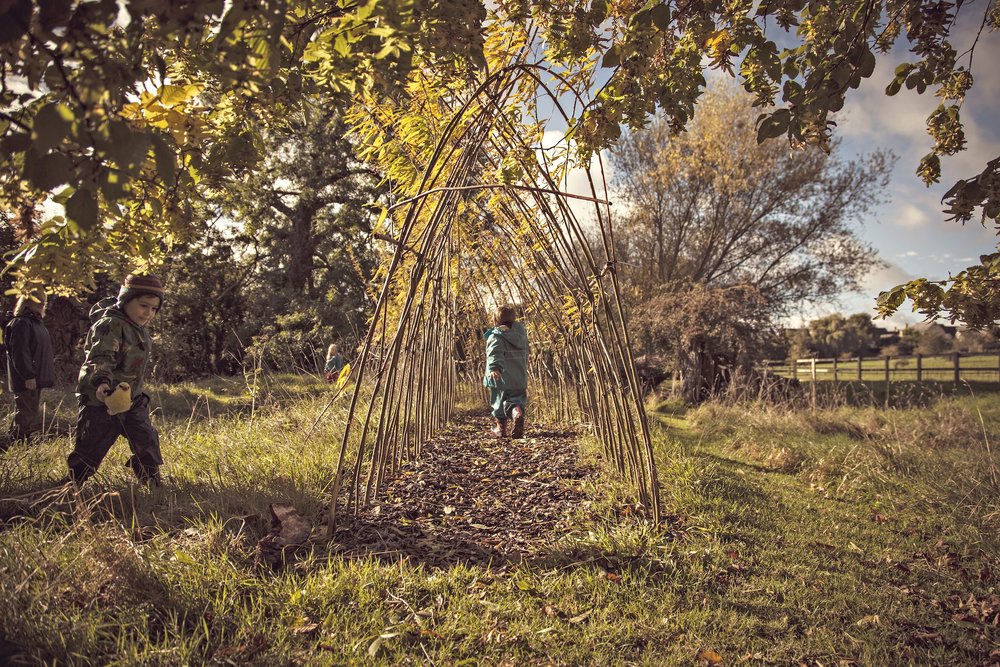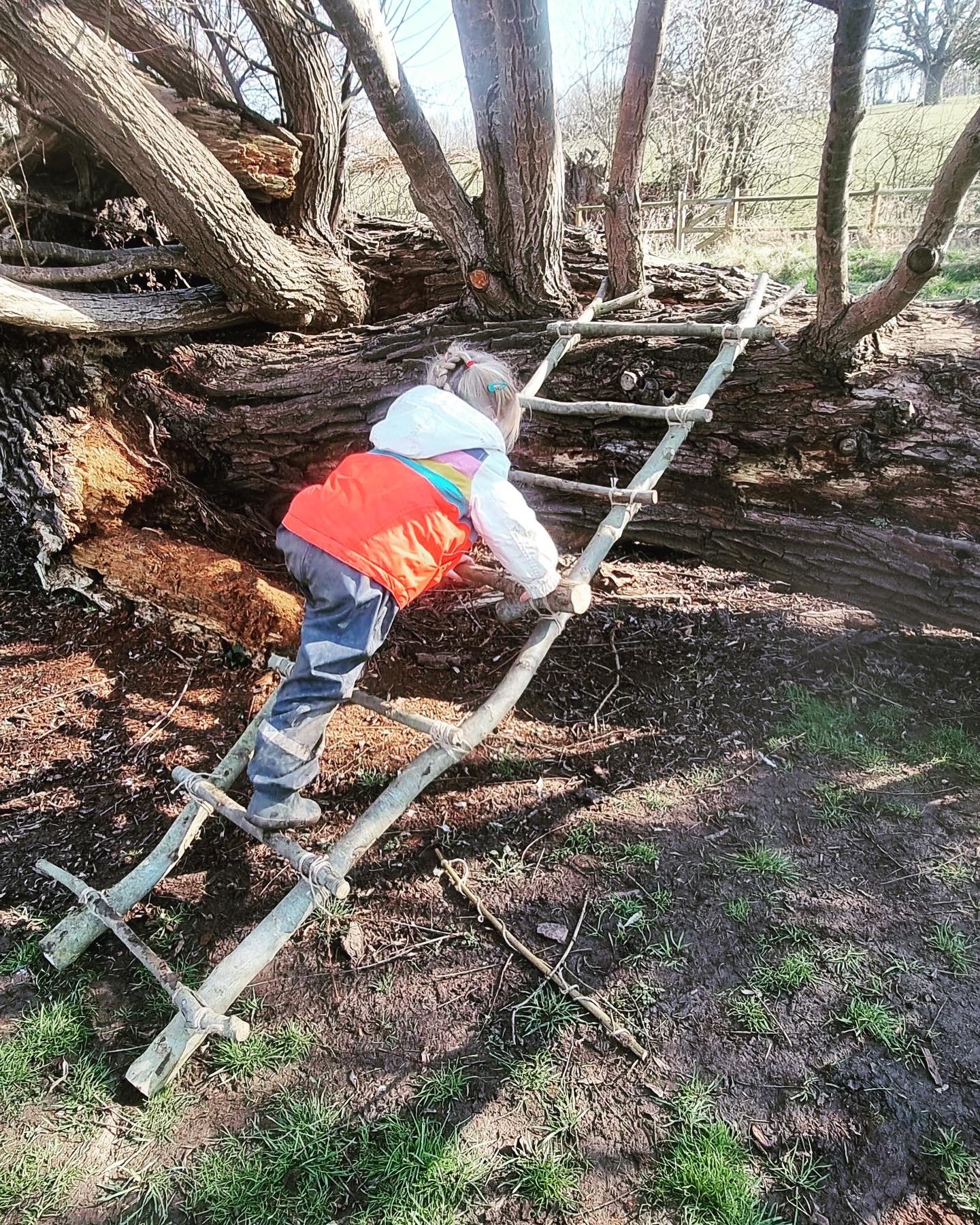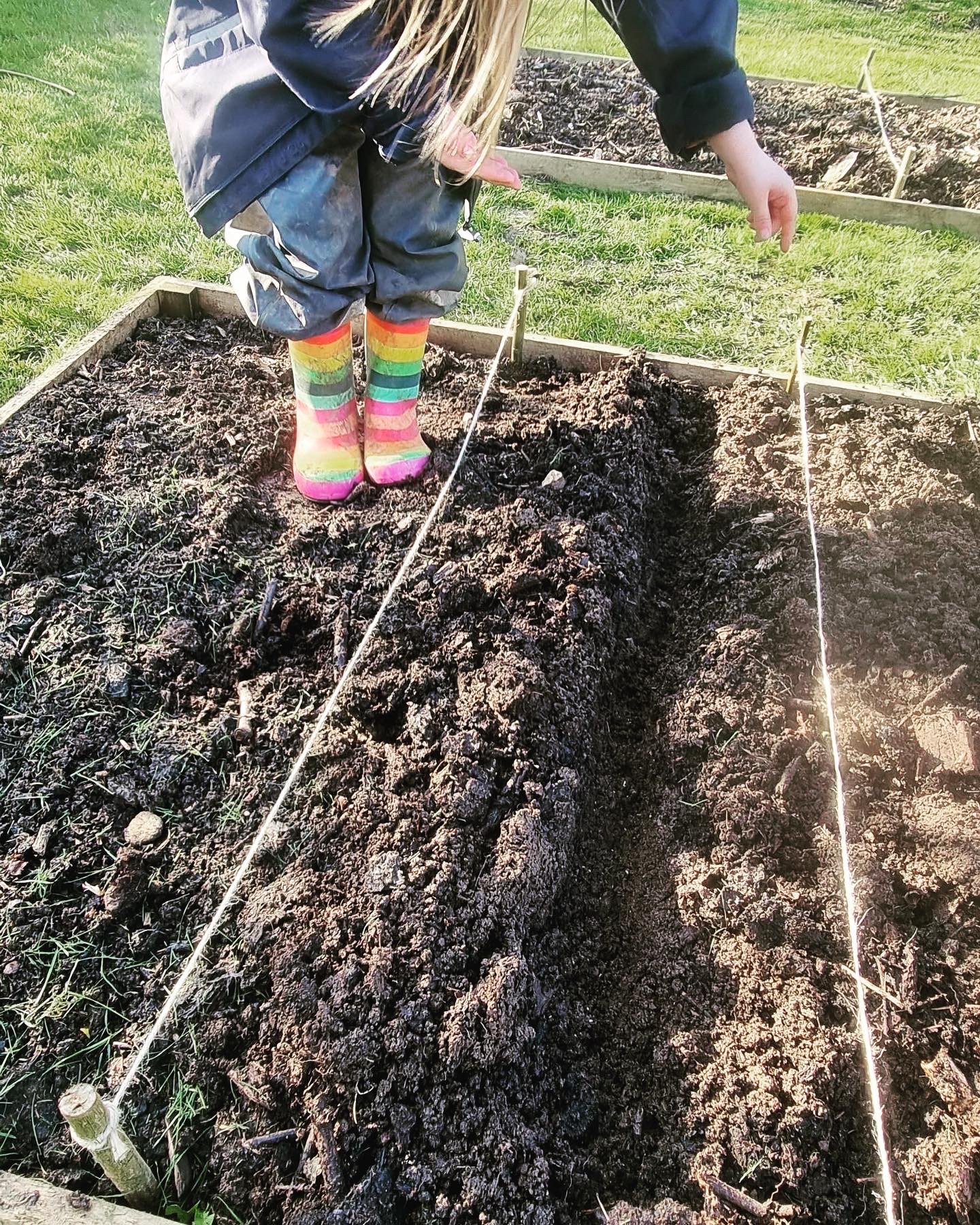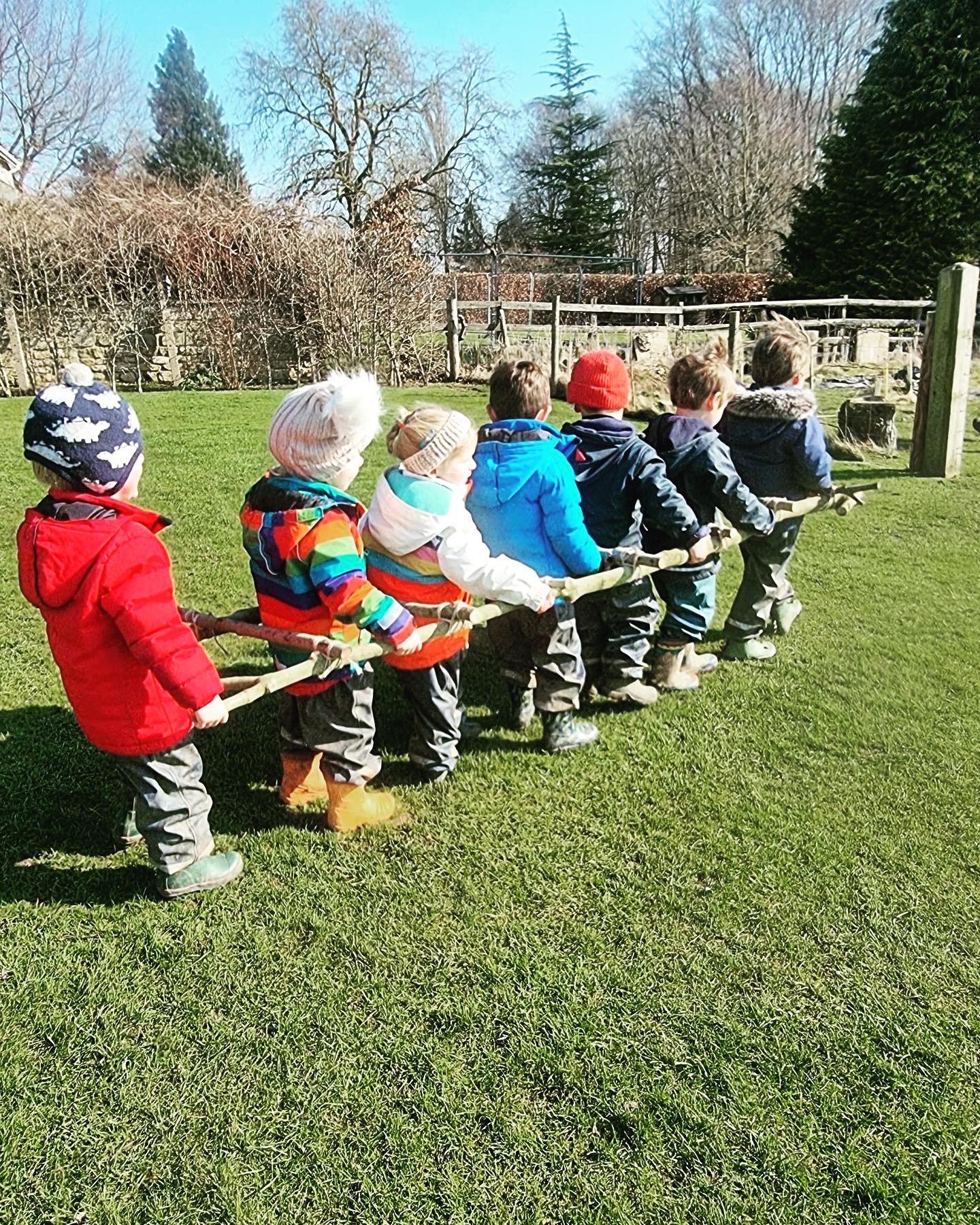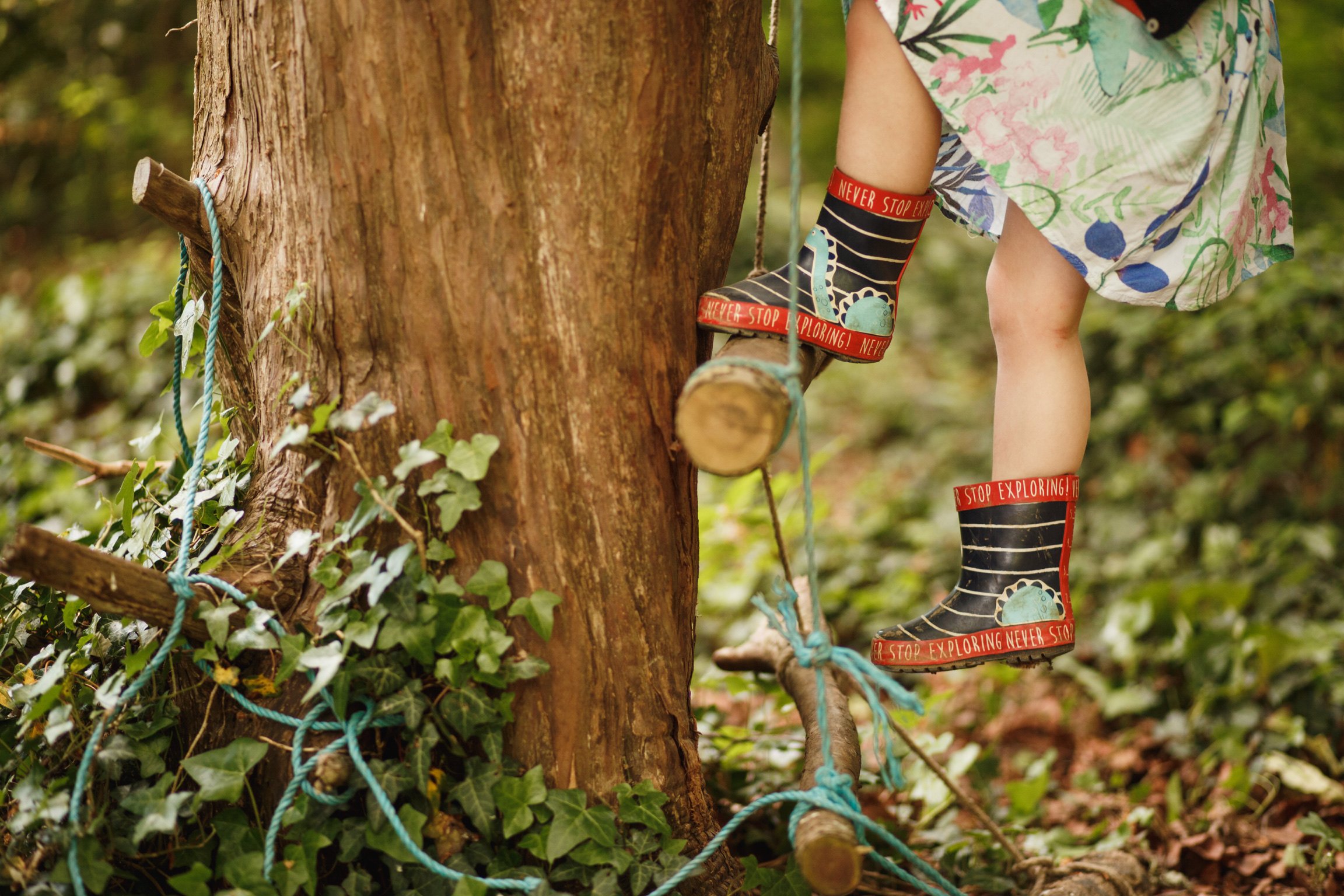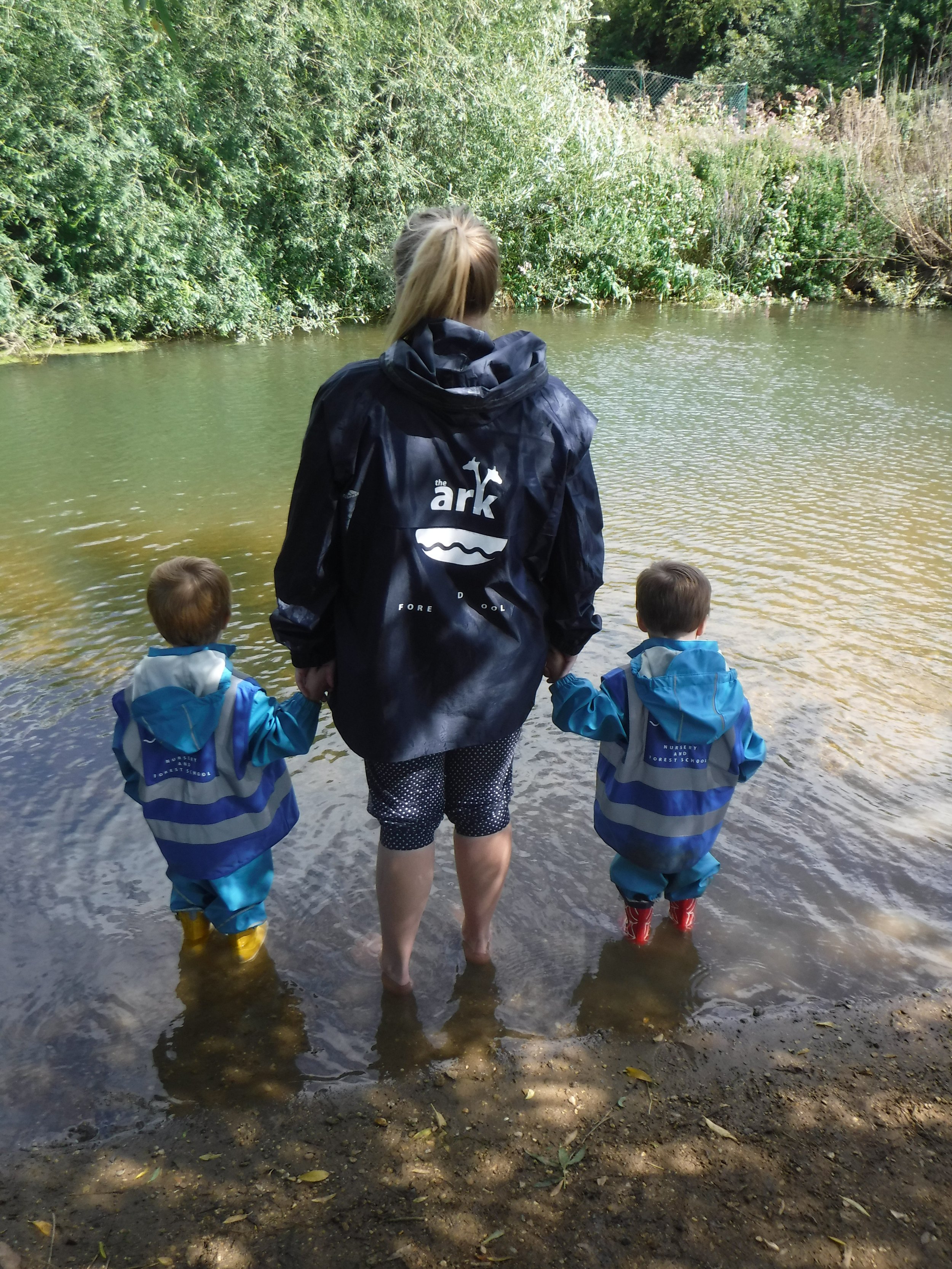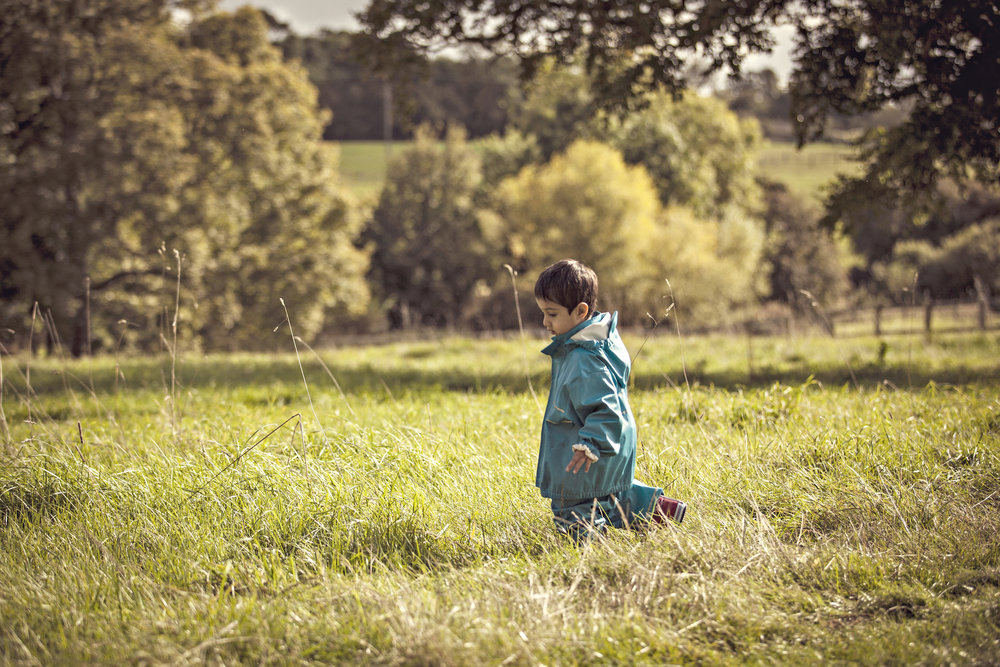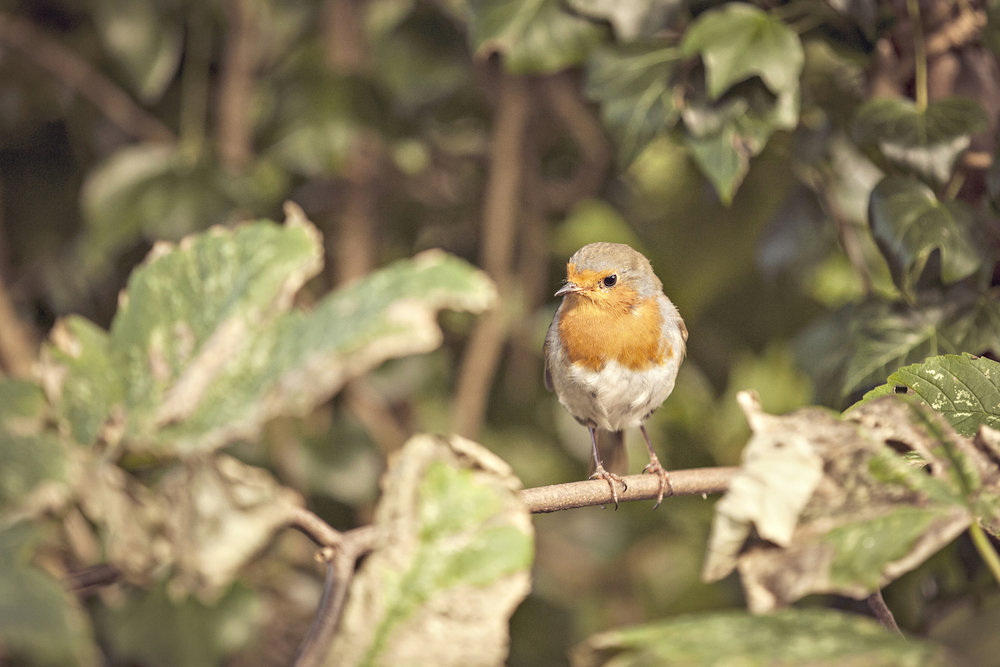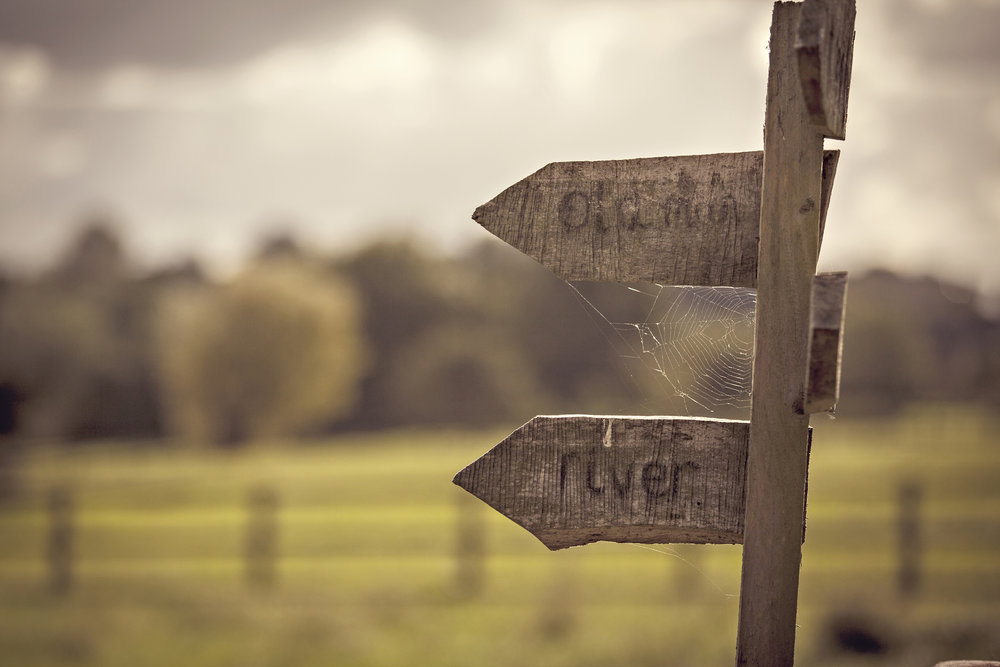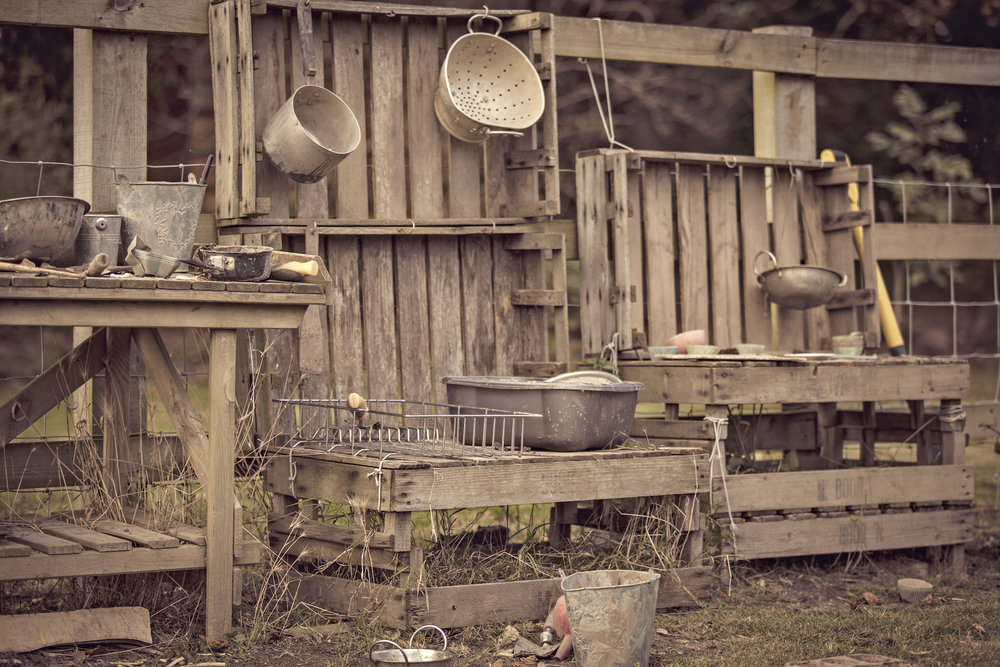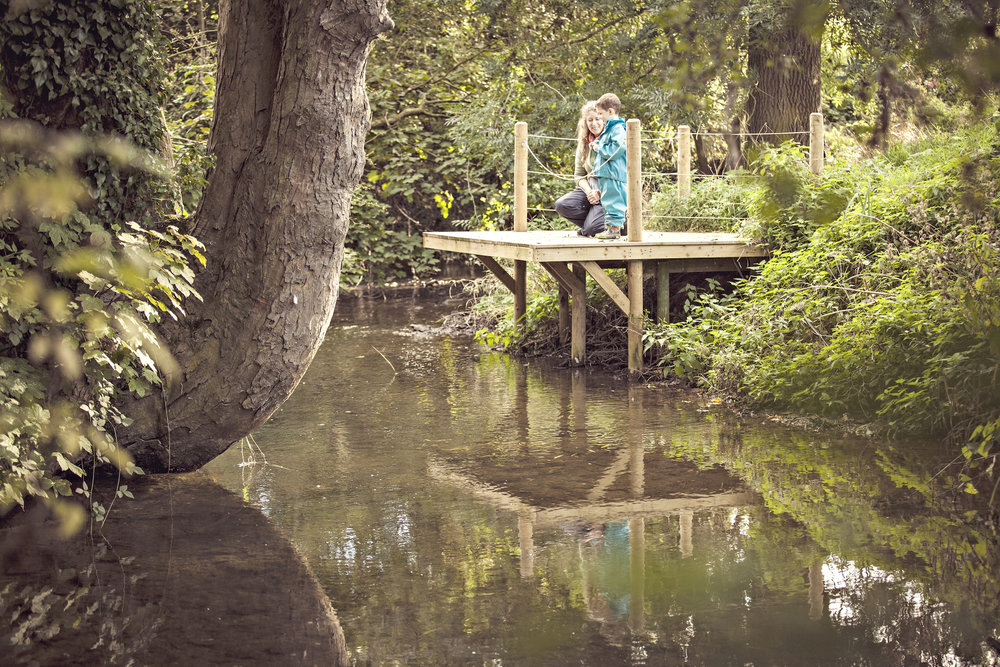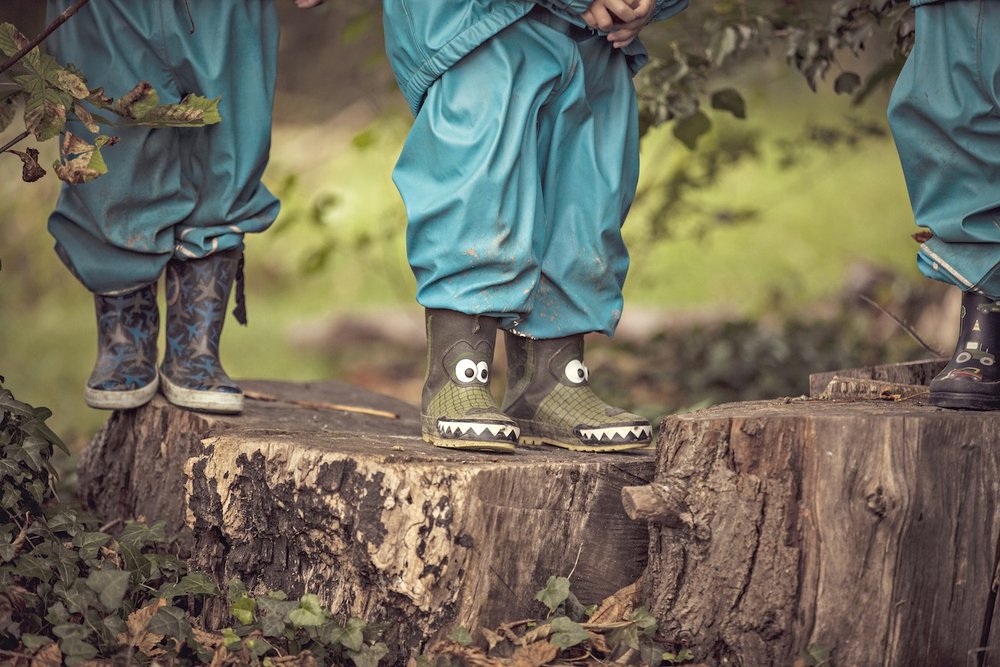forest school
The Ark enjoys the use of a site suitable for Forest School in the nearby village of Ketton. Here, there is a small wood, and a field that leads down to the river Chater – in all about five acres. There is an allotment for the children and a ‘fire pit’ where we gather round for story telling, learning and singing, and a cosy yurt with wood burner for when we need to cuddle up and rest. Down by the river there is a jetty where the children can safely paddle and pond dip and a fallen willow, the ‘Wise Old Tree’ that the children can easily climb.
Forest School – which started in Scandinavia – is all about enabling children to explore and experience the natural world through hands-on activities outdoors. The concept has proven to develop the self-esteem and confidence of pre-school children through activities that involve creativity, working together and child-led learning. What was your happiest childhood memory? Was it watching television? Or was it climbing a tree, running along a windswept beach or paddling in a brook?
““The best classroom and the richest cupboard is roofed only by the sky.” ”
The best location for Forest School is in a wood – in all weathers – as being under a canopy of trees has a positive effect on a child’s well-being, although other ‘wild’ places including meadows, beaches and riverbanks will have a similar effect.
What are the benefits of Forest School?
As children explore the natural habitat, they become more in harmony with nature, bringing a sense of belonging and contentment. The core philosophy of Steiner and Froebel is the belief that nature, the rhythms of the earth and the cycles of life are essential for spiritual and physical growth.
Forest School is also a place to assess risk in a safe environment. This challenging play helps develop self-confidence, competence, emotional resilience and a sense of independence. Without risk and challenge, children are at risk of losing their sense of aspiration and ambition.
Children are given opportunities to experience challenge through tasks which are 80% achievable and 20% challenge, this encourages children to try and persevere at a task which is within their abilities to achieve. The low ratio of children to adults means that tasks are tailored to children’s abilities and interests.
NHS guidelines suggest that children under the age of 5 need 3 hours of exercise per day and that it should be a mixture of bone strengthening, muscle building and cardiovascular. The Forest School environment provide a range of opportunities for these needs.
What will my child be doing at Forest School?
All learning is play-based and child-led. Time and space are limitless and there is no constraint on how long one child engages in an activity. This makes holistic development easier to achieve than in a classroom. It is particularly important for children to have the freedom to choose and express themselves creatively. If not, their innate talents may be stifled.
Activities will include:
Exploring the woodland and making dens
Getting messy and creative in the ‘mud kitchen’
Planting and cultivating crops
Climbing trees
Exploring the river through pond-dipping
Learning about fire safety through cooking on the fire
Learning about insects, animals, plants and trees through investigation
Working as a team and learning problem-solving skills through making dens and structures
Learning about boundaries and risk assessment
Learning about the natural environment and how their actions impact upon it
Learning the safe use of tools, such as bow saws, whittlers and mini-drills
Will my child be safe at Forest School?
During the sessions, we encourage children to take part in the ‘risk assessment’ process. This develops their own awareness and allows them to risk assess when climbing trees etc.
The sessions are staffed on a 1 adult to 4 children ratio, significantly higher than the statutory 1:8 ratio, and are led by qualified Forest School leaders, alongside staff from the nursery.
There will always be a paediatric first aider present.
